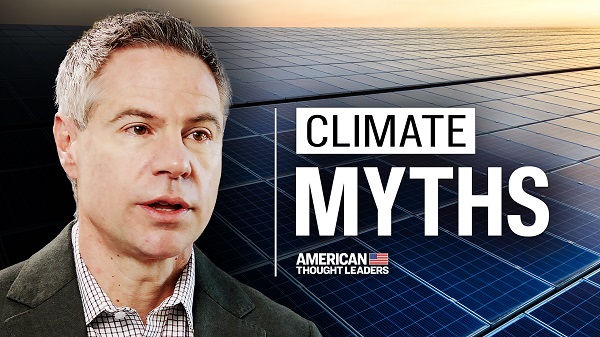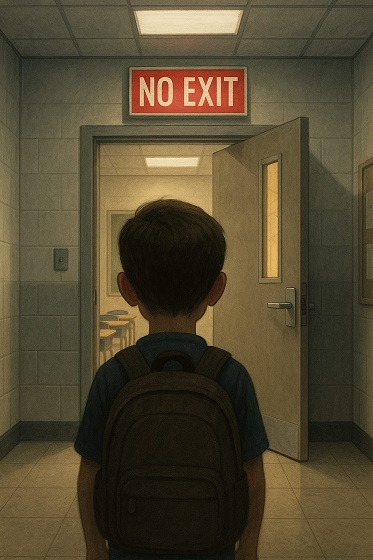Business
Watchdog Calls Out Carney’s Lack of Ethics Code

Democracy Watch Demands PM Re-Enact Full Ministerial Code and End Conflicts by Selling Investments as House Committee Probes Loophole-Ridden Ethics Law
The House of Commons Ethics Committee is finally cracking open the federal Conflict of Interest Act. It’s the first real review in years. And it’s overdue. Today, Democracy Watch is calling on Prime Minister Mark Carney to do something simple and obvious: re-issue the Prime Minister’s code for ministers and staff—publicly, in full—and work with every party to shut the gaping loopholes that have turned Canada’s ethics rules into a suggestion box.
The only publicly posted rulebook is still the 2015 “Open and Accountable Government” guide. It wasn’t signed by Mark Carney. It was signed by Justin Trudeau. Before that, Stephen Harper had his own “Accountable Government” code in 2007, which he strengthened in 2011. Paul Martin re-issued the code in 2004 as “Responsible Government,” and Jean Chrétien was the first to bring it in back in 2002. Every Prime Minister for more than two decades has put their name to a code—except Carney.
That’s a problem. Canadians deserve crystal-clear, enforceable standards: honesty, no apparent conflicts, decisions based on merit, real guardrails on political activity, fundraising, and dealings with lobbyists—and ministerial staff held to the same line. Put the rules in the PM’s own name or admit you plan to weaken them.
“Failing to re-enact the code—or watering it down—would gut already weak rules and further trash public trust,” said Duff Conacher, PhD (Law), Co-founder of Democracy Watch. “Canadians want standards with teeth, not press releases dressed up as ethics.”
Here’s what’s driving the urgency. The Conflict of Interest Act still lets the Prime Minister park massive holdings behind instruments branded as “blind trusts” or “ethics screens.” In practice, those devices often conceal participation; they don’t prevent it. That’s not oversight. That’s camouflage. Democracy Watch’s position is blunt: if you want to end the conflicts, sell the assets. Full divestment, including buyouts of stock options by Brookfield and any other connected companies, as past inquiries recommended.
“Prime Minister Carney’s so-called blind trust is not blind, and his ethics screen is an opaque mechanism that invites doubt about who benefits when the government acts,” Conacher said. “The fix is obvious: sell the investments. Anything less keeps Canadians in the dark.”
Parliament now has a choice. Use this committee review to close loopholes around blind trusts and ethics screens. Spell out what “improperly furthering private interests” really means. Put real independence, transparency, and penalties into law. And stop the double standard: cabinet and staff should face rules at least as tough as those on public servants and senators.
Democracy Watch is also urging broader reforms: clean up lobbying secrecy, slash the federal donation limit to cut off cash-for-access politics, protect whistleblowers who tell the truth, fix the federal access-to-information black box, and take the appointment of watchdogs out of the hands of the very politicians they’re supposed to police—no re-appointments, no cozy incentives.
And let’s be clear: this isn’t just Democracy Watch griping. It has credible grounding in the history of Canadian ethics law. The 1984 Starr–Sharp Task Force laid out a blueprint for a comprehensive ministerial code. Justice Parker’s 1987 commission went further, flatly recommending an end to the shell game of so-called blind trusts and, in cases of serious conflicts, requiring divestment. Parliament’s own research notes confirm it: the idea that you can “screen” away conflicts was discredited almost forty years ago. The fix was spelled out back then.
And yet here we are, in 2025, with a Prime Minister sitting on massive investments, hiding behind loopholes, and ducking responsibility to even sign his own code of conduct. Canadians see it. They know the difference between rules with teeth and ethics theatre.
Enough posturing. Enough smoke and mirrors. Re-enact the full PM Code today. Tighten the Act tomorrow. And end the Prime Minister’s conflicts by selling the assets outright. That’s how you rebuild trust, by earning it, by setting an example, and by standing on principle.
But let’s be honest: he won’t do it. He won’t because these Liberals are swamp creatures to their core. They talk transparency while cashing in behind the curtain. They preach accountability while hiding their own dealings. Canadians know it, and they’re sick of it.
Business
Mark Carney Seeks to Replace Fiscal Watchdog with Loyal Lapdog

After scathing warnings from interim budget officer Jason Jacques, Liberals move to silence dissent and install a compliant insider with “tact and discretion.”
It’s remarkable, isn’t it? After a decade of gaslighting Canadians about their so-called “fiscally responsible” governance, the Liberal Party, now under the direction of Mark Carney, finally runs into a problem they can’t spin: someone told the truth. Jason Jacques, the interim Parliamentary Budget Officer, was appointed for six months, six months. And within weeks, he did something this government considers a fireable offense: he read the books, looked at the numbers, and spoke plainly. That’s it. His crime? Honesty.
Here’s what he found. First, the deficit. Remember when Trudeau said “the budget will balance itself”? That myth has now mutated into a projected $68.5 billion deficit for 2025–26, up from $51.7 billion the year before. Jacques didn’t just disagree with it. He called it “stupefying,” “shocking,” and, this is the one they hate the most, “unsustainable.” Because if there’s one thing Ottawa elites can’t handle, it’s accountability from someone who doesn’t need a job after this.
But Jacques didn’t stop there. He pointed out that this government has no fiscal anchor. None. Not even a fake one. A fiscal anchor is a target, like a deficit limit or a falling debt-to-GDP ratio—basic stuff for any country pretending to manage its money. Jacques said the Liberals have abandoned even that pretense. In his words, there’s no clear framework. Just blind spending. No roadmap. No compass. No brakes.
And speaking of GDP, here’s the kicker: the debt-to-GDP ratio, which Trudeau once swore would always go down, is now heading up. Jacques projects it rising from 41.7% in 2024–25 to over 43% by 2030–31. And what happens when debt rises and growth slows? You pay more just to service the interest. That’s exactly what Jacques warned. He said the cost of carrying the debt is eating into core government operations. That means fewer services. Higher taxes. Slower growth. The burden gets passed to your children while Mark Carney gives another speech in Zurich about “inclusive capitalism.”
And let’s talk about definitions. Jacques flagged that the Liberals are now muddying the waters on what counts as operating spending versus capital spending. Why does that matter? Because if you redefine the terms, you can claim to be balancing the “operating budget” while secretly racking up long-term debt. It’s accounting gimmickry, a shell game with your tax dollars.
He also pointed to unaccounted spending, about $20 billion a year in campaign promises that haven’t even been formally costed yet. Add that to their multi-decade defense commitments, green subsidies, and inflated federal payroll, and you’re looking at an avalanche of unmodeled liabilities.
And just to make this circus complete, Jacques even criticized the way his own office was filled. The Prime Minister can handpick an interim PBO with zero parliamentary input. No transparency. No debate. Just a quiet appointment, until the appointee grows a spine and tells the public what’s really going on.
Now the Liberals are racing to replace Jacques. Why? Because he said all of this publicly. Because he didn’t play ball. Because his office dared to function as it was intended: independently. They’re looking for someone with “tact and discretion.” That’s what the job listing says. Not independence. Not integrity. Tact. Discretion. In other words: someone who’ll sit down, shut up, and nod politely while Carney and Champagne burn through another $100 billion pretending it’s “investment.”
Let’s be clear: this isn’t just about replacing a bureaucrat. It’s about neutering the last shred of fiscal oversight left in Ottawa. The Parliamentary Budget Officer is supposed to be a firewall between reckless political ambition and your wallet. But in Carney’s Canada, independence is an inconvenience. So now, instead of extending Jacques’ term, something that would preserve continuity and show respect for accountability, the Liberals are shopping for a compliant technocrat. Someone who won’t call a $68.5 billion deficit “stupefying.” Someone who’ll massage the numbers just enough to keep the illusion intact.
They don’t want an economist. They want a courtier. Someone with just enough credentials to fake credibility, and just enough cowardice to keep their mouth shut when the spending blows past every so-called “anchor” they once pretended to respect. That’s the game. Keep the optics clean. Keep the watchdog muzzled. And keep Canadians in the dark while this government drives the country off a fiscal cliff.
But let me say it plainly, thank god someone in this country still believes in accountability. Thank God Jason Jacques stepped into that office and had the guts to tell the truth, not just to Parliament, but to the Canadian people. And thank God Pierre Poilievre has the common sense, the spine, and the clarity to back him. While Mark Carney and his Laurentian elite pals are busy gutting oversight, rewriting the rules, and flooding the economy with borrowed billions, it’s men like Jacques who refuse to play along. He looked at the books and didn’t see “investment”—he saw a ticking fiscal time bomb. And instead of ducking, he sounded the alarm.
Poilievre, to his credit, is standing firmly behind the man. He understands that without a real watchdog, Parliament becomes a stage play, just actors and scripts, no substance. Backing Jacques isn’t just good politics. It’s basic sanity. It’s the minimum standard for anyone who still thinks this country should live within its means, tell the truth about its finances, and respect the people footing the bill.
So while the Liberals scramble to muzzle dissent and hire another smiling yes-man with a resume full of buzzwords and a Rolodex full of Davos invites, at least one opposition leader is saying: No. We need a watchdog, not a lapdog. And in a city full of spineless bureaucrats, that’s not just refreshing—it’s absolutely essential.
Business
Sluggish homebuilding will have far-reaching effects on Canada’s economy

From the Fraser Institute
At a time when Canadians are grappling with epic housing supply and affordability challenges, the data show that homebuilding continues to come up short in some parts of the country including in several metro regions where most newcomers to Canada settle.
In both the Greater Toronto area and Metro Vancouver, housing starts have languished below levels needed to close the supply gaps that have opened up since 2019. In fact, the last 12-18 months have seen many planned development projects in Ontario and British Columbia delayed or cancelled outright amid a glut of new unsold condominium units and a sharp drop in population growth stemming from shifts in federal immigration policy.
At the same time, residential real estate sales have also been sluggish in some parts of the country. A fall-off in real estate transactions tends to have a lagged negative effect on construction investment—declining home sales today translate into fewer housing starts in the future.
While Prime Minister Carney’s Liberal government has pledged to double the pace of homebuilding, the on-the-ground reality points to stagnant or dwindling housing starts in many communities, particularly in Ontario and B.C. In July, the Canada Mortgage and Housing Corporation (CMHC) revised down its national forecast for housing starts over 2025/26, notwithstanding the intense political focus on boosting supply.
A slowdown in residential construction not only affects demand for services provided by homebuilders, it also has wider economic consequences owing to the size and reach of residential construction and the closely linked real estate sector. Overall, construction represents almost 8 per cent of Canada’s economy. If we exclude government-driven industries such as education, health care and social services, construction provides employment for more than one in 10 private-sector workers. Most of these jobs involve homebuilding, home renovation, and real estate sales and development.
As such, the economic consequences of declining housing starts are far-reaching and include reduced demand for goods and services produced by suppliers to the homebuilding industry, lower tax revenues for all levels of government, and slower economic growth. The weakness in residential investment has been a key factor pushing the Canadian economy close to recession in 2025.
Moreover, according to Statistics Canada, the value of GDP (in current dollars) directly attributable to housing reached $238 billion last year, up slightly from 2023 but less than in 2021 and 2022. Among the provinces, Ontario and B.C. have seen significant declines in residential construction GDP since 2022. This pattern is likely to persist into 2026.
Statistics Canada also estimates housing-related activity supported some 1.2 million jobs in 2024. This figure captures both the direct and indirect employment effects of residential construction and housing-related real estate activity. Approximately three-fifths of jobs tied to housing are “direct,” with the rest found in sectors—such as architecture, engineering, hardware and furniture stores, and lumber manufacturing—which supply the construction business or are otherwise affected by activity in the residential building and real estate industries.
Spending on homebuilding, home renovation and residential real estate transactions (added together) represents a substantial slice of Canada’s $3.3 trillion economy. This important sector sustains more than one million jobs, a figure that partly reflects the relatively labour-intensive nature of construction and some of the other industries related to homebuilding. Clearly, Canada’s economy will struggle to rebound from the doldrums of 2025 without a meaningful turnaround in homebuilding.
-

 MAiD1 day ago
MAiD1 day agoQuebec has the highest euthanasia rate in the world at 7.4% of total deaths
-

 Business24 hours ago
Business24 hours agoCarney shrugs off debt problem with more borrowing
-

 COVID-192 days ago
COVID-192 days agoSpy Agencies Cozied Up To Wuhan Virologist Before Lying About Pandemic
-

 Automotive23 hours ago
Automotive23 hours agoThe high price of green virtue
-

 Bruce Dowbiggin22 hours ago
Bruce Dowbiggin22 hours agoMaintenance Mania: Since When Did Pro Athletes Get So Fragile?
-

 Environment2 days ago
Environment2 days agoThe Myths We’re Told About Climate Change | Michael Shellenberger
-

 Crime2 days ago
Crime2 days agoCBSA Bust Uncovers Mexican Cartel Network in Montreal High-Rise, Moving Hundreds Across Canada-U.S. Border
-

 Alberta19 hours ago
Alberta19 hours agoWhen Teachers Say Your Child Has Nowhere Else to Go














